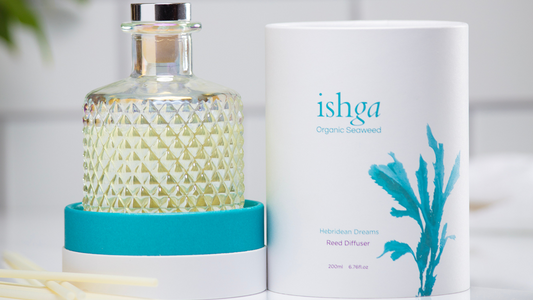
What is happening to your skin while you sleep?
Share
Our skin is the largest organ and with that important role comes a lot of hard work. It helps to regulate our body temperature, but its main role is to provide protection, creating a barrier between us and external substances. As we wind down, the evening gives skin a chance to renew itself and heal any damage from the day like UV exposure, pollution or stress.
Let’s find out what happens to our skin while we sleep.
Working the nightshift
While we sleep our skin goes into ‘restore and recover’ mode as it works hard to limit any damaging affects you may have encountered through the day, such as stress and external pollution. When we don’t get enough Zz’s, our eyes can be puffy, dark circles more pronounced, and complexions pale. If possible, try to get at least seven hours of sleep and get into a routine of going to bed at the same time every night.
Four things that happen to your skin while you sleep
1.Skin cells regenerate
Skin cells regenerate much faster during the night than during the day, renewal and repair reaches its peak during the hours of 10pm- 6am, so try to get your sleep in around then!
2.Blood flow to skin layers increases
While we sleep our blood vessels dilate and this allows the blood to flow freely to skin layers. Skin cells then fill with oxygen and nutrients meaning they can renew and restore more effectively, leaving you with glowing skin in the morning! When we are sleep deprived, cell growth is affected and that's why wrinkles can seem more pronounced the next day.
3.Increase in skin permeability
Due to the increase in blood flow while we sleep, this results in the temperature of the skin rising, with water and moisture in the skin being lost more quickly. This is a perfectly natural process (also known as transepidermal water loss) that gives us the opportunity to perfect our nighttime skincare routine, using products that will help the skin as it goes through the repair process.
4.Hormones released
Adults have approximately 4-5 sleep cycles through the night. During this time certain hormones are released contributing to your skins’ effort to repair itself.
- Melatonin – An antioxidant, it helps to prevent damage by neutralising free radicals and keeping fine lines and wrinkles at bay.
- Cortisol – When we are stressed our bodies increased levels of cortisol are released into the bloodstream. It is our bodies natural response, but if the levels of cortisol are too high it can damage collagen, which is important for skin as it promotes cell growth and gives our skin strength and structure. Once we enter our REM (rapid eye movement) sleep phase, the levels of cortisol are greatly reduced, and this then allows the collagen to get to work.
- Somatotrophin – Also known as human growth hormone, somatotrophin is a peptide that helps with skin cell reproduction and regeneration. It’s also been known to be beneficial for wound healing.
Night time skincare routine
If your skin is going to be working hard while you sleep, it’s a good idea to give it a helping hand. Avoid using face wipes to cleanse your face; they may seem like a quick and convenient fix late at night, but the truth is that they are not good for your skin or the environment. They don't properly cleanse and lift the dirt from your skin, which can lead to clogged pores. Many face wipes also have chemical preservatives and fragrances in them that can irritate the skin.
Here at ishga we are a big fan of the double cleanse, it gives your skin a thorough clean and sets it up for the night ahead.
Step 1. First cleanse
Start by warming our Marine Cleansing Balm in between your hands, to activate the oils. Apply to your face and neck in circular motions. Massage into skin for a couple of minutes, before taking a reusable cloth with warm water to remove the balm.
Step 2. Second cleanse
Apply Active Cleansing Lotion and gently massage into your face and neck. It is gentle enough to be used on the delicate eye area. Use your cloth and warm water to remove the lotion.
Step 3. Tone
You can then apply Hebridean Marine Toner to refresh your skin.
Step 4. Moisturise
As the final stage in your nighttime routine, you can either apply both a facial oil and moisturiser or just opt for a moisturiser. Apply Nourishing Face Oil and wait a few minutes before applying either Anti-oxidant Marine Cream or Hydra+ Marine Cream. Our Hydra+ Marine Cream has been created using an advanced formula features multiple molecular weights of hyaluronic acid to hydrate and nourish different skin layers - the perfect product to help your skin work through the night.
Adopting a simple routine every night will give you nourished and hydrated skin, ready for those hours of beauty sleep to do their work!




